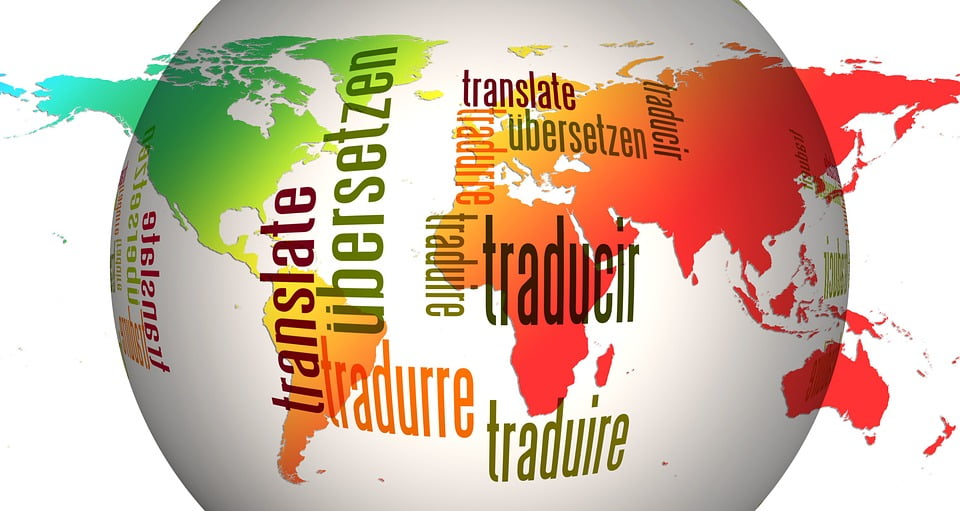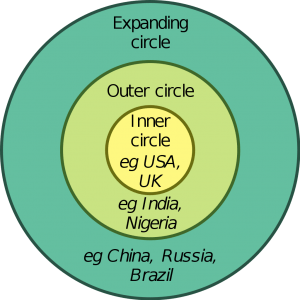Former Italian prime minister Mario Monti said that the English language should be ‘upgraded’ after Britain leaves the EU. It is clear that Monti thinks regular English is unsuitable for use on the world stage. But how should English be upgraded? Perhaps the answer is to use Globish.
English has a million words but only a fraction of these are used on a day to day basis. It makes sense to concentrate on the most useful language when communicating internationally. But what exactly is Globish – and how could it replace English?
Globish as an Alternative to English
Despite many people speaking English as a second or third language, there are still many problems in communication due to the complexity, sheer volume of words and colourful slang used by native speakers.
Studies show that when non-native speakers talk together in English, they can understand each other much better than when they try to communicate with a native English person.
This is not only due to the speed of speech but also the richer language that native speakers use, such as unusual adjectives, slang, intonation and colloquial expressions.
By using Globish instead of regular English for international communication, we could make the English language easier to understand.
What is Globish?
Globish (Global English) is a simplified version of English. This modified English only uses basic vocabulary and simple grammatical structures.
Globish is used by non-native speakers of English as an easy way of communicating across cultures and languages.
This can be very useful in the business world and after Brexit it is likely Globish will take over from standard English (as native speakers understand it) and a simpler version of the language will dominate.
The Three ‘Circles’ of English
The issue of ‘World Englishes’ was first raised in 1978 to examine concepts of regional Englishes globally. Currently, there are approximately 75 territories where English is spoken either as a first language (L1) or as an unofficial or institutionalized second language (L2).
The most influential model of the spread of English is Braj Kachru’s model of World Englishes.
According to this theory, the diffusion of the English language can be divided into three ‘circles’: the inner circle, the outer circle and the expanding circle.
The ‘inner circle’ includes native English-speaking countries, such as the UK, Ireland, Australia, Canada and the USA.
The ‘outer circle’ contains countries where English is historically important due to imperial expansion, such as India, Pakistan and Nigeria. Often the countries in the ‘outer circle’ still use English for the judiciary and in higher education.
The ‘expanding circle’ covers countries where English is not used formally but still has a role, such as in tourism and international business.
Globish Vocabulary and Grammar
Globish is more formally known as Basic Global English.
The premise of Globish is that is uses 20 basic grammar rules that allow for variation of expression. Pronunciation rules in general are relaxed, so this allows for more variation for students of Globish.
Globish is centred on a vocabulary with just 750 words. Students also learn 250 additional words related to their own interests or specific needs, such as their profession.
In addition to the vocabulary and grammar structure, Globish also teaches ‘Basic Politeness Strategies’ to help students learn how to use the language culturally.
This helps students use ‘please’ and ‘thank you in appropriate places, while also offering suggestions for acceptable topics for general ‘small talk’ – and topics you should avoid.
For example, in the UK, acceptable topics for small talk include the weather, sports, entertainment such as uncontroversial TV shows and films, current light news items, plans for the weekend/summer, and the current location/situation.
Topics to avoid discussing with people you don’t know very well include politics, religion, age, death and personal finances.
Restrictions of Globish
Many native English speakers might find Globish restrictive. It feels strange or frustrating to only talk with basic words and simple grammar when you are used to a full and rich mode of expression.
Some might also feel it is a shame if non-native speakers are not encouraged to try using more interesting words and expressions.
Indeed, Globish is not adequate for discussing any topic in great depth or with varied emotion. However, for clear communication of simple ideas Globish is ideal.
In fact, in many circumstances, Globish would be far more useful when communicating internationally.
Globish for Post-Brexit Communication
After Brexit, European leaders will be able to use Globish for international discussions. For basic business and political issues, clear and simple language is perfect. This means there is no room for misunderstanding.
It makes sense for the EU to continue using English for communicating simply because it is usually the common second language between countries.
Many EU leaders speak English impeccably and it would seem silly to choose a different language that most countries are not as confident using.
Outside the world of politics, people often use simple English or Globish to communicate across the language barrier.
It seems likely that in international communications, Globish, rather than English, could dominate after Brexit.
Share Your Thoughts on Globish
Do you like the idea of Globish? Do you currently use it?
In what other ways could non-natives ‘upgrade’ the English language?
Do you think Globish will be difficult for native English speakers to use?
Have you ever formed your own simplified version of a foreign language?
Which topics of conversation are considered ‘safe’ for small talk in your culture – and which should be avoided?
Attributions
- The three circles of English as described by Kachru by Awesomemeeos [CC BY-SA 4.0], from Wikimedia Commons



There is Basic Global English (BGE by Joachim Grzega with 750 words) and there is Globish (by Jean-Paul Nerrière with 1500 words) which are two competing sublanguages of English … This article describes the first kind of English, but the second kind has some parallellisms to the first kind (except that it isn’t interested in small talk at all).
Interesting – thanks for these insights, Jan. It’s fascinating to think it’s possible to communicate effectively with so few words!